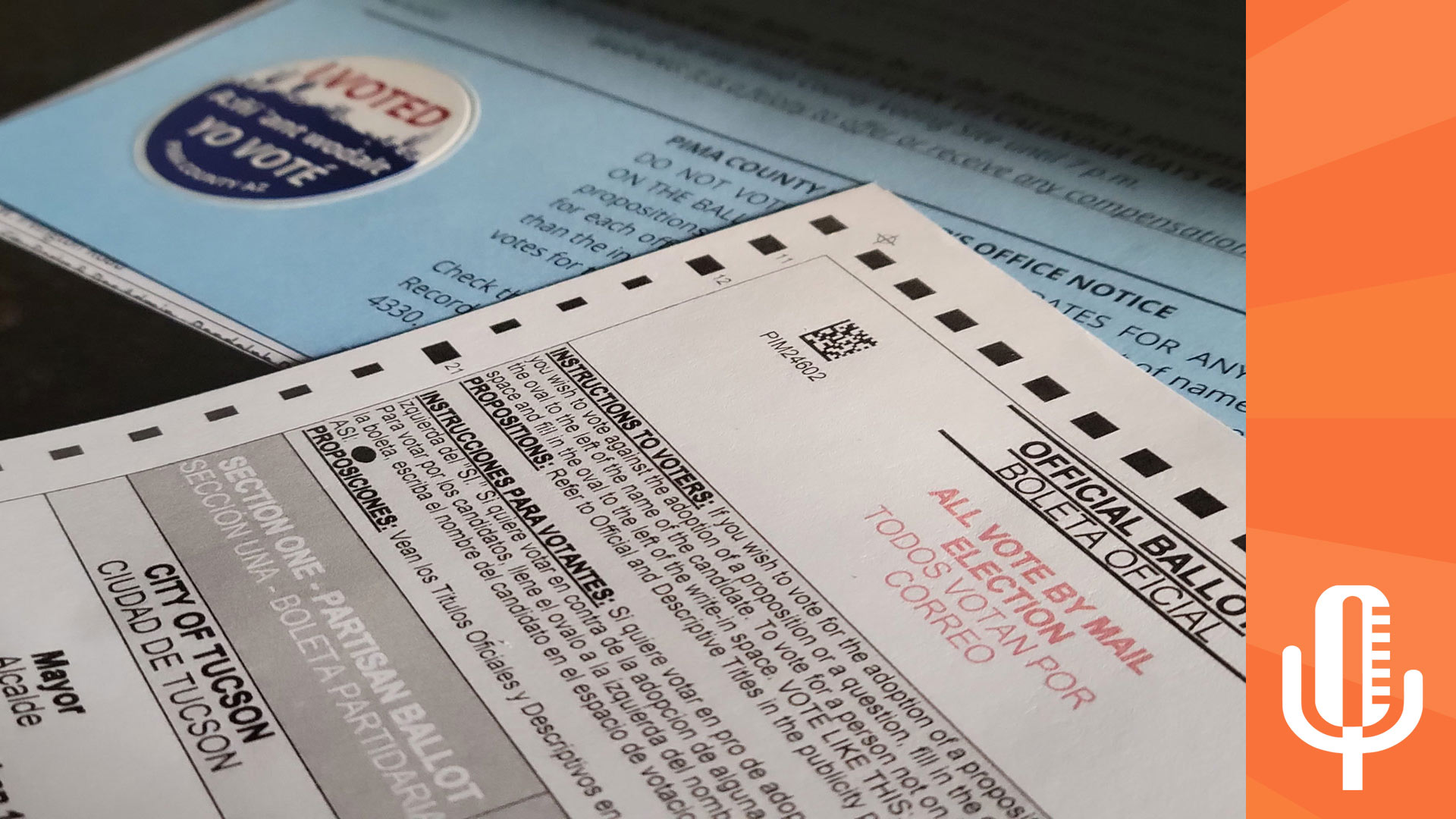 Finding reliable sources of information is critical to being an informed voter.
Finding reliable sources of information is critical to being an informed voter.
The Buzz for September 6, 2024

If you would like to send AZPM a question regarding elections or a question you would like us to ask a candidate, email us at newsroom@azpm.org. Or you can sign up to be a part of our election focus group here.
The 2024 election is now less than two months away, and people in Arizona and other swing states are being bombarded by attempts to sway their votes.
So how can voters tell if a source is reliable or not? The Buzz asked experts in a few areas to help pass along what voters need to know to vet sources.
"So the first thing I always tell people is, who is sharing the information that you're seeing? Is it someone you know? Is it an organization you know? What is the reputation of that person or that organization?" said Aaron Sharockman, Executive Director of fact-checking organization PolitiFact.
He said that past experience can be a major factor in determining how much each individual trusts an organization, but another key is transparency.
"The second thing I would ask someone to do is, whatever piece of information is out there, whatever the claim is, what is the source? So if the New York Times is saying Joe Biden is pulling out of the presidential election, I would say, well, who's telling you that? And if they said, Well, we heard it from his chief of staff, well, then I would trust that a lot, because they're willing to tell me their source. If they're not going to tell me who their source is, say according to unnamed sources, I'm going to trust that less."
Sharockman said that sources are not the only area where people should be concerned about transparency from their news organization.
"At Politifact, if we publish a story, it will include a link or a source, every source or every link that we looked at in coming to our conclusion, so that anyone coming to our website can actually follow along in great detail about how we reach the conclusions we reached. Similarly, we list every donor to our website over $1,000. Those are two little things that no bad actor is ever going to do. They're not going to tell you where they're getting their money from, and they're not going to take the time to explain their source material, obviously, in many cases, because it does not exist."
While news organizations are one important step, there are more direct ways that people can get information today. That can lead to a need to directly vet information yourself.
One area that can commonly be an issue is polling related to elections.
"The devil's in the details," said Mike Noble, who runs the Arizona-based polling company Noble Predictive Insights. "However, when you look at polling, I think probably the simplest terms I could say for people is that I wouldn't just look at what the headline says. If able to, I would try to go to the article or find the poll, to actually look at it, to see some of the information on it."
Noble said a major factor is to look at whether or not an organization has either an acknowledged history or a reputation of carrying political bias.
“Not saying the partisans are wrong, just very suspect because they have a self interest, like, their literal job is to get their team elected. Compared to non-partisans, their loyalty is not to the red or blue team. It’s actually to the truth."
Noble said that in the last election, non-partisan pollsters were on average four points more accurate than partisans.
"That's huge. I mean, most margin of error is right around four points. So I think it's as simple as that."
Another area of concern for many voters is who is paying for campaigns.
AZPM listener Meg Weesner wrote in asking a question about the status of Arizona's Stop Dark Money law, with particular interest toward the Arizona Corporation Commission race, which has been marked by campaign donations from the utilities the commission regulates in past elections.
The disclosures required by the Stop Dark Money law, more formally known as the Voters Right to Know Act, can be found on this page of the Arizona Secretary of State's website. That page contains information about groups that are campaigning on behalf of a candidate or stance.
Other reports for those running for Corporation Commission or other state-level offices are available via the Secretary of State's See the Money website.
Those seeking information on federal races, such as candidates seeking congressional office, can find that information via the Federal Election Commission website. Another option for federal data is the website of OpenSecrets, a non-profit dedicated to increasing the transparency of money in politics.
Campaign finance for races at local levels can be found with related sites. County level data can be found via most county's elections department–such as Pima County's, while city or town level races report to a clerk's office–such as the Tucson City Clerk's Office.


By submitting your comments, you hereby give AZPM the right to post your comments and potentially use them in any other form of media operated by this institution.